Ten soldiers and 19 criminal suspects died in a massive operation to arrest a son of jailed drug trafficker Joaquin "El Chapo" Guzman, the Mexican government said.
A dramatic shootout damaged three planes and created panic and terror at a local airport.
Ovidio Guzman, nicknamed "El Raton" (The Mouse), had allegedly helped to run his father's operations since El Chapo was extradited to the United States in 2017.
The 32-year-old was rounded up yesterday in the northwestern city of Culiacan and flown to Mexico City on a military plane following six months of intelligence work to track him down, the government said.
"Ten members of the military ... unfortunately lost their lives in the line of duty," Defence Secretary Luis Cresencio Sandoval told reporters, adding 19 "lawbreakers" were also killed in the operation.
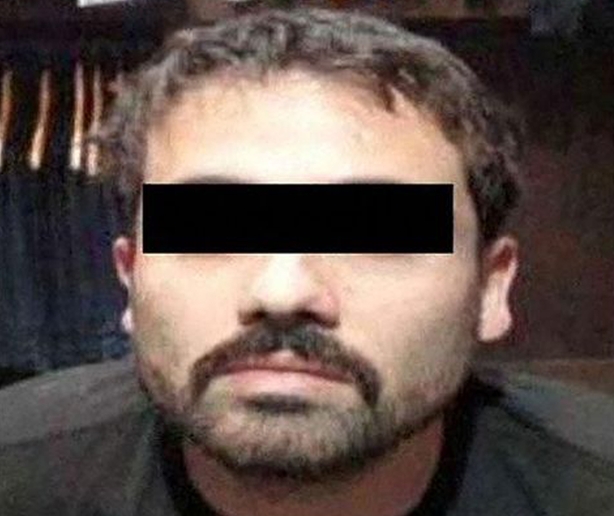
A colonel who commanded an infantry battalion was among the dead. His team came under attack after the arrest was carried out, said the minister.
Another 35 soldiers sustained gunshot wounds and were taken to hospital, while 21 gunmen were arrested.
Mr Sandoval said a passenger plane that was just about to take off from Culiacan airport, as well as two Mexican Air Force aircraft, were hit as members of the Sinaloa Cartel launched a furious offensive to rescue their captured boss.
The air force planes "had to make an emergency landing" after receiving "a significant number of impacts", said Mr Sandoval.
No injuries resulted from the plane attacks.
The US had a reward out of up to $5m for information leading to Ovidio Guzman's capture. It accuses him of being a key player in the infamous Sinaloa cartel.
Gunfire and arson shook Culiacan after the arrest, which came as Mexican President Andres Manuel Lopez Obrador prepared to welcome his US counterpart Joe Biden next week for a North America leaders' summit where security is expected to be high on the agenda.
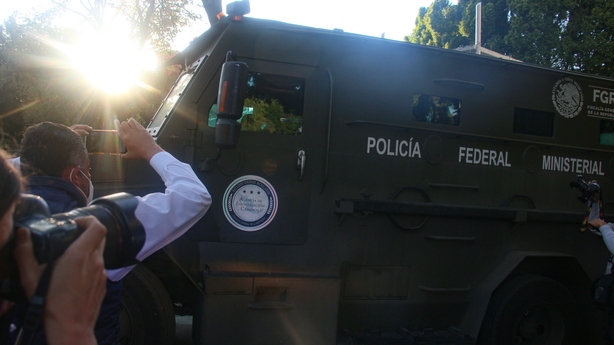
As Guzman's henchmen reacted with fury, a passenger jet and an air force plane were both hit by gunfire at the Culiacan airport.
Videos on social media showed passengers and Aeromexico airline employees at the terminal ducking behind counters as gunfire rang out. No injuries were reported there.
Cartel gunmen set cars and lorries ablaze at several intersections in the city, and authorities reported 19 roadblocks.
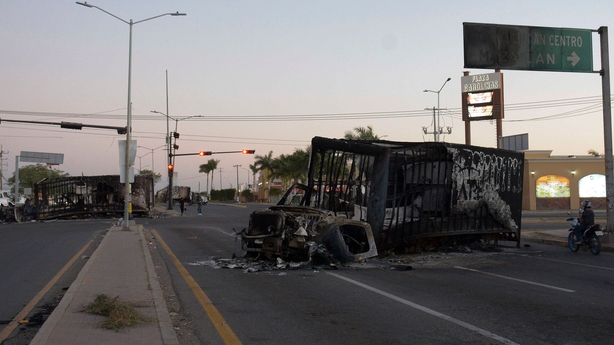
El Chapo is serving a life sentence in the US for trafficking hundreds of tonnes of drugs into the US over the course of 25 years.
However, his cartel remains one of the most powerful in Mexico, accused by the US government of exploiting an opioid epidemic by flooding communities with fentanyl, a synthetic drug about 50 times more potent than heroin.
Ovidio Guzman and one of his brothers are accused of overseeing nearly a dozen methamphetamine labs in Sinaloa, as well as conspiring to distribute cocaine and marijuana, according to the US State Department.
He also allegedly ordered the murders of informants, a drug trafficker and a Mexican singer who refused to perform at his wedding, it said.
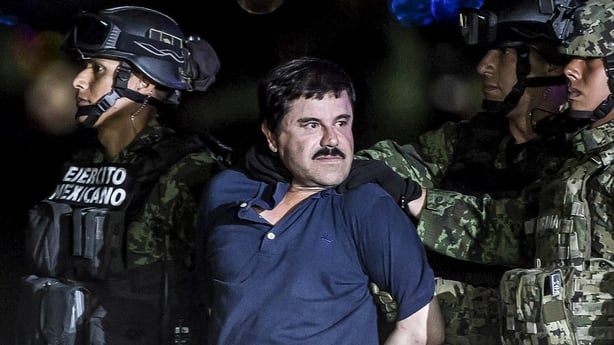
Ovidio Guzman was captured briefly once before in 2019, but security forces freed him after his cartel waged an all-out war in response.
Several people were killed on that occasion in Culiacan as gunmen launched a massive machine-gun assault, leaving the streets strewn with blazing vehicles.
His release prompted sharp criticism of Mr Lopez Obrador, who said the decision was made to protect civilians' lives in the city of around 800,000 people.
Security expert David Saucedo said Ovidio Guzman's capture was "not a consequence of Biden's visit, but rather of the pressure that the Americans were putting on the government" since the failed arrest in 2019.
Foreign Minister Marcelo Ebrard played down the prospects of a fast-track extradition, saying Ovidio Guzman was expected to face legal proceedings in Mexico.
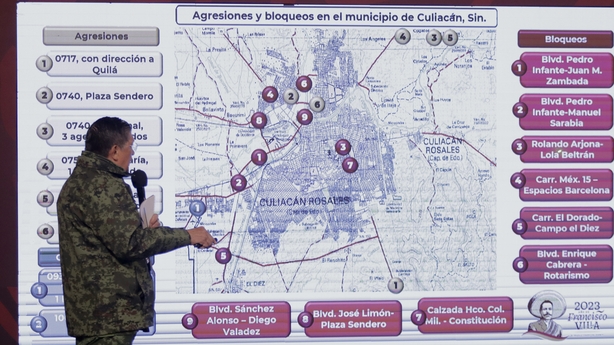
Mr Lopez Obrador has struggled to curb the brutal violence plaguing Mexico since taking office in 2018.
He championed a "hugs not bullets" strategy to tackle violent crime at its roots by fighting poverty and inequality with social programmes, rather than with the army.
The left-wing populist has asked the US to invest in regional economic development instead of sending helicopter gunships and other weapons to take on drug traffickers.
Mexico has registered more than 340,000 murders since the government controversially deployed the army to fight drug cartels in 2006, most of them blamed on criminal gangs.
On Sunday, cartel gunmen attacked a prison in the border city of Ciudad Juarez, leaving nearly 20 people dead and allowing 25 inmates to flee.
The next day, seven people were killed during a police operation to recapture the prisoners. A gang leader among the escapees was killed yesterday in a shootout with security forces, authorities said.

